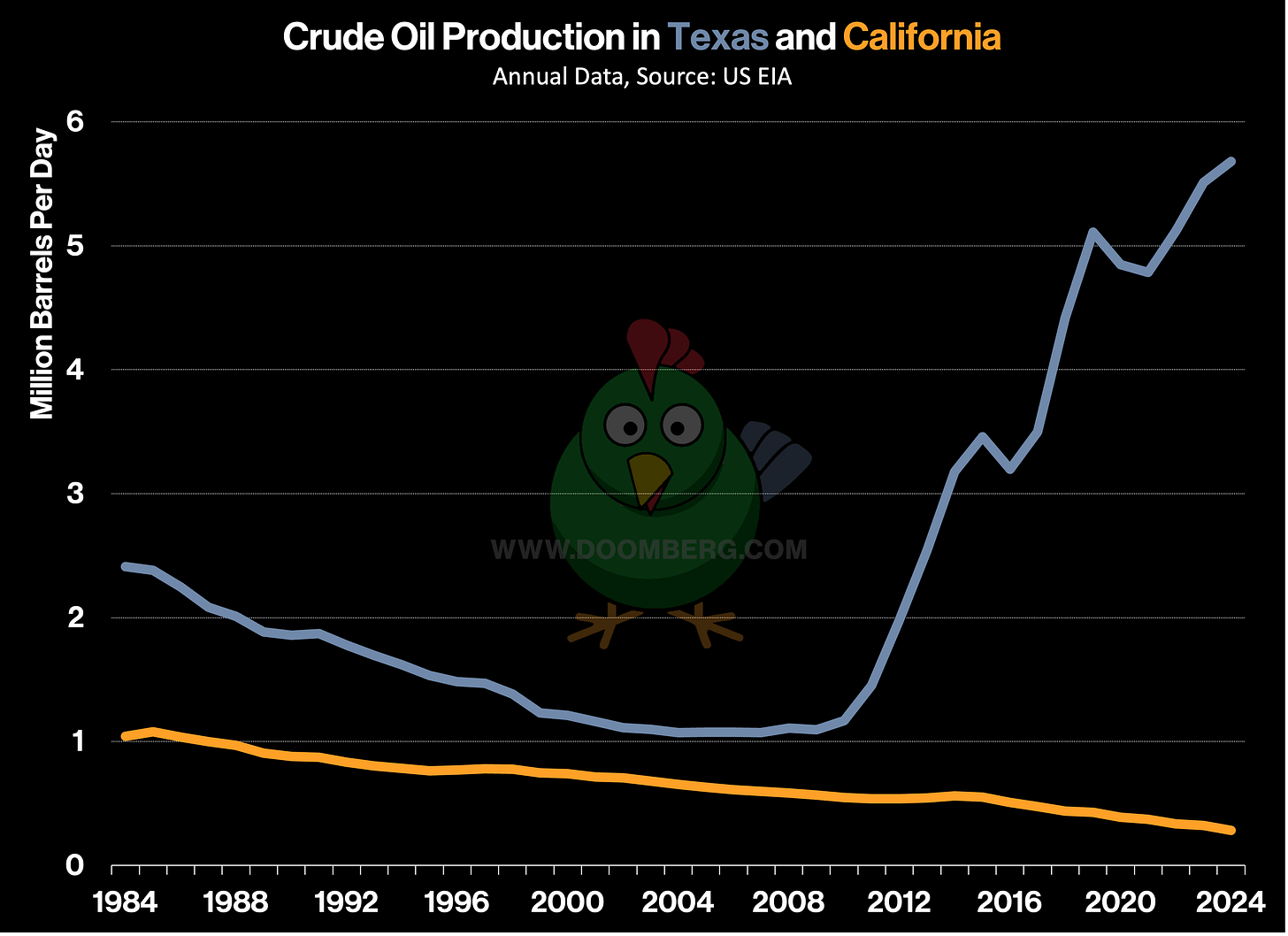Permission Slips
How migration out of California imperils US oil and gas production.
“We would like to live as we once lived, but history will not permit it.” – John F. Kennedy
We have long argued that global aggregate hydrocarbon production is gated more by politics than by geology. Look no further than the great US states of Texas and California. In a politically unconstrained world, both would be capable of producing copious amounts of oil and gas. In reality, Texas supports the full development of its resources while the residents of California vote to ignore theirs (in our experience, many are, indeed, fully ignorant of the Monterey shale deposit’s very existence). A perusal of annual crude oil production data from the US Energy Information Administration (EIA) reveals the striking impact regulatory regimes have on energy output:
The full range of California's mismanagement extends well beyond the energy sector and has catalyzed substantial domestic out-migration of the state’s residents in recent years. Among the more interesting ways to measure the phenomenon is by consulting, well, the moving companies:
“2024 saw more people pack up and leave California than move to the Golden State, according to several major moving companies.
U-Haul, Atlas Van Lines, and United Van Lines all released data showing migration trends per state last year. While the numbers vary, each reported more customers moving away from California than moving in, mirroring migration data from the US Census Bureau.”
California lost nearly 240,000 residents net to domestic migration in 2024. One popular destination has been Colorado, where the influx has reshaped the state's political landscape. As recent state election results make clear, many of those departing California have brought their progressive politics with them. A chart tracking the party composition of the Colorado Senate illustrates the extent of this shift (the story follows a similar trend in the Colorado House and governor’s office):
Were this merely an issue with local ramifications, the “Californication” of Colorado might hold little interest for our national and international readers. But Colorado plays an underappreciated but material role in US energy production, and environmentalists have been partnering with amenable lawmakers to substantially roll back the development of the state’s abundant hydrocarbon resources, putting the overall growth of US oil output under strain at an inopportune time. Let’s head to the Centennial State and quantify recent trends.



